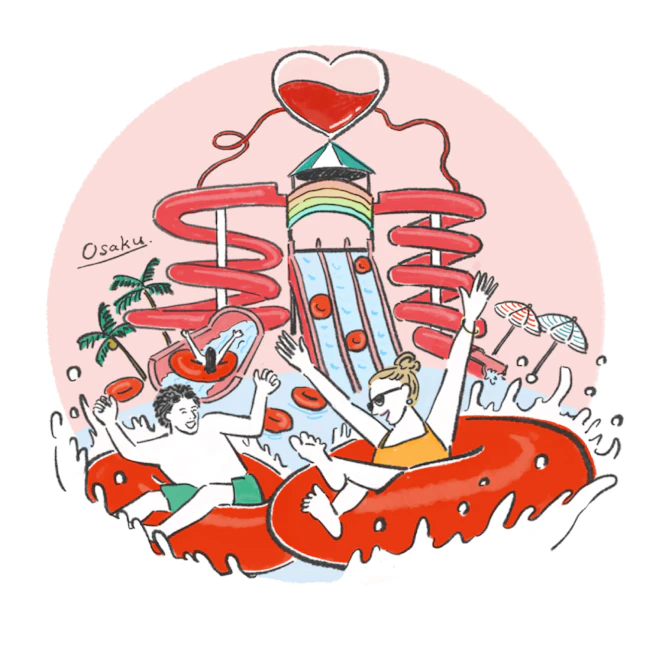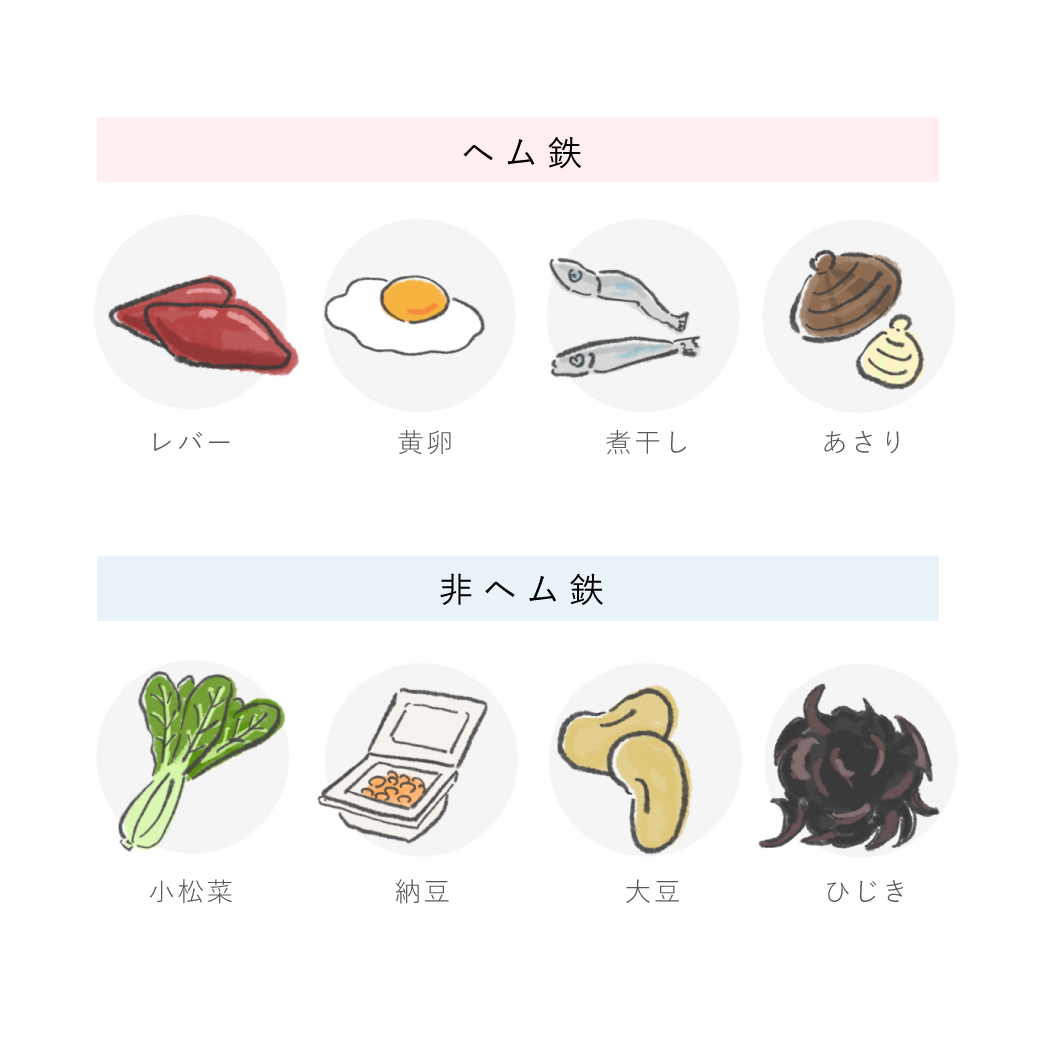
What are the symptoms and causes of anemia? Introducing effective foods and nutrients
SUMMARY
- What is anemia?
- Symptoms of anemia
- Causes of anemia
- What to do if you become anemic
- -Foods that are effective in preventing and relieving anemia
- ·summary
Anemia is a condition that anyone may experience at some point in their life. What are the symptoms and causes of anemia? Also, how should you deal with anemia if you or someone around you is experiencing symptoms of anemia?
In this article, we will explain in detail the causes and symptoms, as well as introduce foods and nutrients that are effective in preventing anemia.
What is Anemia?
First of all, what does anemia refer to?
According to the definition of the World Health Organization (WHO), anemia refers to a state in which the hemoglobin level in the blood (red blood cells) is low. Men are considered anemic when their hemoglobin level is 13.0 g/dl or less, meaning that their hemoglobin level is 13.0 g (grams) or less per 1 dl (deciliter) of blood, and women are considered anemic when their hemoglobin level is 12.0 g/dl or less.
Hemoglobin is a protein contained in red blood cells that carries oxygen throughout the body. When the amount of hemoglobin decreases, not enough oxygen is delivered to tissues throughout the body, which can lead to various disorders.
Symptoms of anemia
Typical symptoms of anemia include:
Dizziness or lightheadedness (difficulty standing, feeling unsteady, etc.)
• Palpitations (feeling like your heart is pounding or your pulse is racing)
• Fatigue (feeling tired, heavy, etc.)
• Decreased concentration (feeling dazed and unable to focus on anything)
• Decreased motor function (such as difficulty performing movements that are normally easy)
All of these symptoms are painful, and if they suddenly appear, it can be a real hassle. Even if you try to stop the symptoms immediately, they can't be stopped, and they affect your daily and social life.
Causes of Anemia
Below we will explain the causes of anemia. Understanding the causes of anemia can help you prevent the condition itself.
Lack of iron in the body
The most common cause of anemia is iron deficiency.
Hemoglobin, a protein found in human red blood cells, is produced using iron. "When there is a lack of iron, hemoglobin cannot be produced, and the body's ability to transport oxygen decreases." This phenomenon itself is anemia.
Lack of other nutrients such as zinc and folic acid
In addition to iron, nutrient deficiencies can also cause anemia.
The most common are zinc, folic acid, and vitamin B12. In rare cases, anemia can also occur due to copper deficiency.
However, it is said that zinc deficiency alone does not often cause anemia.
- Have a blood disease
Anemia can be caused not only by iron deficiency or nutritional deficiency, but also by illness.
For example, anemia can occur due to diseases that cause abnormalities in blood cells, such as leukemia and myelodysplastic syndrome. In addition, anemia can also occur due to diseases other than blood, such as chronic kidney disease, rheumatoid arthritis, and thyroid disease.
If you suddenly start experiencing frequent anemia, see a doctor immediately.
Lack of blood due to bleeding
A simple lack of blood due to bleeding can also cause anemia.
For example, continuous bleeding due to gynecological or digestive diseases can lead to anemia. Other causes of anemia include menstrual abnormalities such as frequent menstruation or menorrhagia, and bleeding due to gastric or duodenal ulcers or cancer.
What to do if you have anemia
What should you do if you have anemia? Here we will introduce what to do if you have anemia, and what you can do if someone around you has anemia.
● What to do if you become anemic
If you experience dizziness or lightheadedness due to anemia, it is effective to slowly squat down on the spot. If possible, close your eyes, rest, and wait until the symptoms subside.
If your clothes are tight, loosen your belt, and if you are able to lie down indoors, elevate your legs above your heart. Wait quietly for the symptoms to subside.
● What to do if someone around you has anemia
If the people around you seem to be suffering from anemia, it is important for them to rest.
If anemia occurs during daily life, you should encourage them to rest and provide support for their daily lives. If they are at work, you should provide them with time to rest.
● It is important to prevent anemia
If possible, it is best to prevent anemia itself. Anemia can be prevented to some extent by making adjustments to your diet and lifestyle.
For example, drinking tea (green tea, black tea, oolong tea, etc.) or coffee immediately after a meal inhibits the absorption of iron, so try to avoid this as much as possible.
Of course, improving your diet is also important. Pregnant women, who tend to be deficient in iron and folic acid, need to be especially careful.
Foods that are effective in preventing and relieving anemia
To prevent and cure anemia, it is very important to pay attention to your diet. Here are some examples of foods that can prevent and cure anemia.
● Foods High in Iron
Iron is a component of hemoglobin.
There are two types of iron: heme iron, which comes from animals, and non-heme iron, which comes from plants. Non-heme iron is less efficiently absorbed and can cause stomach upset.
Foods that contain heme iron include liver (pork and chicken), egg yolk, dried sardines, clams, and mussels, and allow you to absorb iron efficiently.
Foods that contain non-heme iron, such as komatsuna and spinach, contain vitamin C, which helps with iron absorption, so they may be effective in preventing anemia.
However, there is a daily limit for iron intake, and the tolerable upper limit for iron-free people aged 15 and over is about 50 mg/day for men and 40 mg/day for women. Please be careful to pay close attention to the intake limit.
● Foods High in Zinc
Zinc strengthens the membranes of red blood cells. If you are deficient in zinc, you will not be able to produce normal red blood cells.
Foods that are relatively easy to consume zinc from include oysters, beef, pork liver, mackerel, and wakame seaweed.
● Foods high in folic acid
Folic acid helps produce red blood cells. It is recommended that women take folic acid during pregnancy and after childbirth, and it is an essential nutrient for the growth of the human body.
Folic acid is found in many vegetables, but it is also found in fruits such as passion fruit and strawberries. Other recommended foods include liver (pork, chicken, beef) and natto.
The recommended daily intake of folic acid is 240 µg for both men and women aged 18 years and over.
● Foods High in Vitamin B12
Vitamin B12 helps with the production of red blood cells. Vitamin B12 works well with folic acid, and taking them together can have a synergistic effect.
Foods that can effectively provide vitamin B12 include liver (pork, chicken, beef), clams, mussels, firefly squid, and cheese.
summary
We have provided information about anemia. Once symptoms of anemia occur, it takes time for them to subside, and it can be difficult to immediately return to daily life or work. To prevent anemia, it is important to get enough nutrients from your diet.
Use this article as a guide to maintaining a balanced diet.
Article supervision

Professor Itsuki Nakayama
ALMOND CLINIC
Member of the Japanese Society of Aesthetic Plastic Surgery and the Japanese Society of Internal Medicine. Graduated from Juntendo University.
After working at a university hospital and a municipal hospital, she gained experience in cosmetic surgery and cosmetic dermatology at a major beauty clinic.
Currently, he is the director of ALMOND CLINIC in Shinjuku, Tokyo, where he is involved in cosmetic medicine and regenerative medicine.
He also supervises many medical articles.








